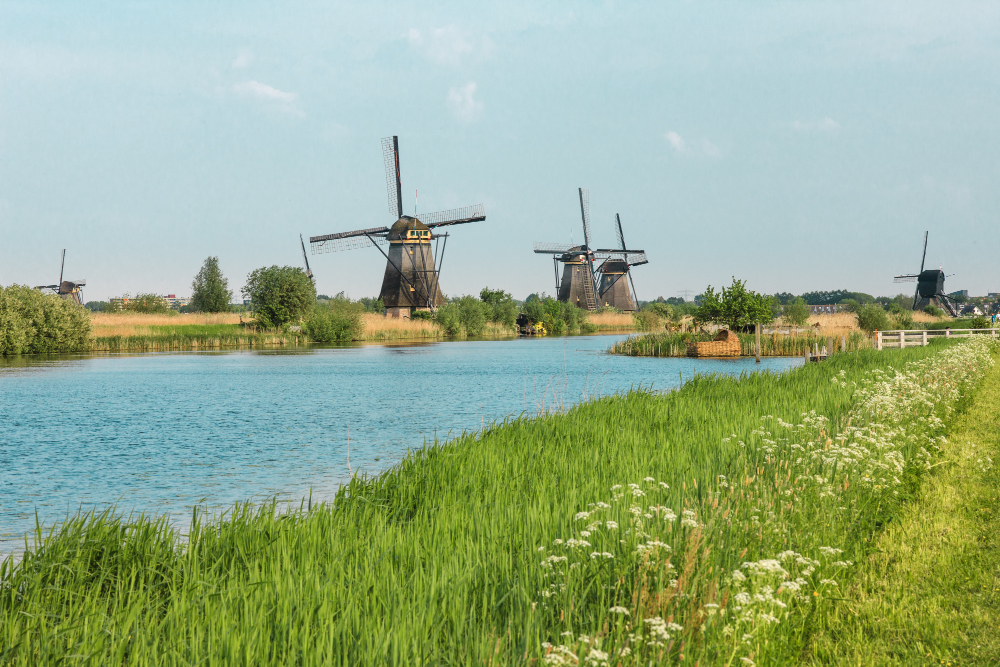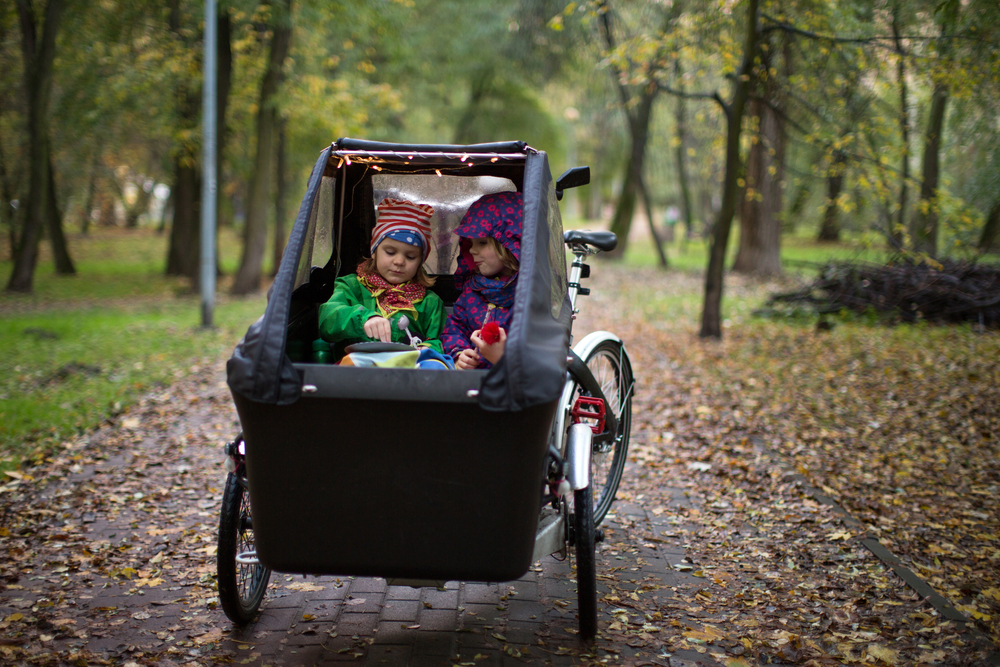On the surface, the Netherlands might seem like nothing more than a neat country with some pretty windmills and cute canals.
But underneath, there’s a nation of people who have a special way of pushing boundaries, whether it comes to innovation, art, or the infamous directness.
Here are four ways the Dutch are truly zonder limiet (without limits).
Innovation without limits: how the Dutch play with water
They say that “God created the world, but the Dutch created the Netherlands.” And that’s not just a fun saying; the way the Dutch do water management is literally what keeps a country that is basically below sea level afloat.
Already 2000 years ago, the Dutch started to build the first dikes to reclaim land from the sea and create so-called polders. These endeavours culminated in creating an entire province — Flevoland, the land of which was reclaimed from the sea in the 1950s and 1960s.
Then there is Delta Works, an intricate system of dams, sluices, locks, and storm surge barriers which protect the coastal areas of Zeeland and South Holland from the sea.

But the Dutch “zonder limiet” attitude doesn’t end at civil engineering. With land becoming ever less available in the Netherlands, the Dutch are always finding alternative spaces for their activities — or homes.
That’s why the country is not only home to Rotterdam’s famous floating houses, but also the world’s first floating farm, a perfect blend of agriculture and cutting-edge environmental design.
Cycling without limits: a biking utopia
With over 35,000 kilometres of dedicated cycling paths, the Netherlands is a country built for bikes. For every person in the lowlands, there are 1.3 bicycles, suggesting that cycling isn’t just a means of transport — it’s a way of life.
Aside from the excellent infrastructure, what sets the Dutch approach apart is that cycling is accessible to practically everyone.
You’ll see toddlers enjoying a daily ride to kindergarten on their parents’ bakfiets and Dutch omas elegantly cruising through the streets of major cities and small towns on their pretty lady bikes.

And you know what else has no limits when it comes to cycling in the Netherlands? The creativity with which the Dutch use their two-wheelers.
You’ll see a bakfiets as a small street version of an open-top party bus, a basic bike as a means of transporting the contents of an entire home, or a bicycle as an alternative to ice skates to enjoy a frozen lake.
Dutch directness without limits: love it or hate it
The one thing all expats know has no limits in the Netherlands is Dutch directness.
Imagine sharing an idea in a meeting only to be told: “That won’t work,” or forgetting your PIN in a supermarket just to hear: “You’re not really having a good day today” from the cashier.
When it comes to the infamous Dutch bluntness, expats generally fall into two camps: those who find it absolutely brutal and those who find it surprisingly refreshing.
Where did this phenomenon come from, you ask? From a belief in transparency and efficiency (yes, this country gets high off efficiency with their strict, to-the-minute agendas).
Why dance around the truth when you can address it head-on (and potentially make a poor expat cry in the process)?
All jokes aside, Dutch directness has benefits to it. It fosters open communication and allows everybody to speak their mind regardless of rank.
And while some people use it as an excuse to be offensive, in most cases, it is not meant to offend. It’s simply an ingrained cultural norm that values clarity over politeness.
Sex without limits: breaking the boundaries
The Netherlands, and particularly Amsterdam, are considered some of the most sex-positive places in the world. After all, it was the first country to legalise same-sex marriage in 2001.
Sex is not taboo in the lowlands, and this is reflected back in the country’s sex education.
While in some countries, sex ed is about showing kids horrific diseases in an attempt to deter them from doing it altogether, the Netherlands takes a different approach. Here, the emphasis is on the importance of loving relationships — both with yourself and with others.

What’s more, the Dutchies’ relaxed attitude towards prostitution is world-known, and you’ll find red light districts not just in the capital but also in other cities.
People here are so open (and kinky) that a group of residents from a town in Zeeland had to launch a whole project to stop people from having outdoor sex.
The only boundaries when it comes to sex in the Netherlands are the ones you (or your neighbours) put in place.
Whether it’s reclaiming land from the sea, designing cities for bikes, or redefining what it means to be honest, Dutch culture thrives on breaking limits.
What’s your experience with Dutch culture without limits? Let us know in the comments!



